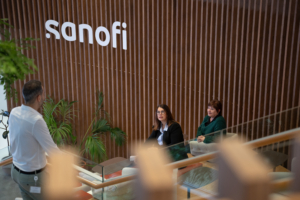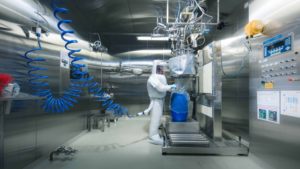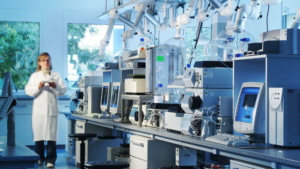
Don’t misinterpret the results of the referendum
During the Swiss Biotech Day in Zurich, the Swiss Biotech Report 2014 highlighted the most important innovation drivers in the country's industry and summarised the sector's most relevant topics.
And the report’s breadth highlighted a key fact. Although most citizens remain largely unaware of the impact biotech is having on our lives outside of healthcare, the field is now central to a very wide range of sectors – from environmental protection to the food industry.
Innovation drivers and financing were of course major issues at the Swiss Biotech Day. However, the hottest topic of all was the country’s recent referendum vote on mass immigration. The Swiss constitution will now have to be revised to include a statement reflecting that the country wants to control the flow of immigrants. The EU decision to suspend Switzerland from Horizon 2020 as a direct consequence of the vote certainly gave rise to plenty of discussion. Current policies, however, will remain in place for the next three years, which at least creates security in planning. Now this time period has to be used wisely to find the best possible solutions for the future. Preserving the innovative power of this research-intensive sector is vital to keeping the industry’s engine running – both inside and outside the country. To achieve that, the sector needs access to the most important research networks and skilled specialists with the best possible training. The mass immigration vote creates additional hurdles that threaten to slow down the momentum of the biotech sector. However, both the Swiss federation and its cantons understand that the Life Sciences are of utmost importance, and policymakers are expected to continue to give priority to the sector.
Some commentaries suggest that Switzerland is now against a foreign work force. Nothing could be farther from the truth. For generations, Switzerland’s economic success has been built on fruitful academic and industrial exchange with people from all over the world. In a recent publication, the director of the leading think-tank Avenir Suisse compared the country’s immigration statistics from 2007-2012 with its neighbours. Per capita over those six years, Switzerland welcomed nearly three times as many immigrants as Austria, twice as many as Italy, and around nine times more than France or Germany. Based on its relative size, the Confederetia Helvetica therefore does very well indeed. But emotionally it is a fact: smaller countries feel that big immigration numbers dilute feelings of national identification.
Whilst direct democracy has led to many sound decisions in the past, the current situation is proving to be a challenging consensual process. Progressive forces want to find a balanced solution. The process itself is necessary and mandatory, but it doesn’t have to heed the voices demanding ‘immediate’ decisions that are often based on personal motives and views. Because the country needs to innovate, I am confident Switzerland’s liberal conditions will continue to hold true in the future. Not many industry sectors are as well connected globally as biotechnology. Relationship-building spans continents, and different cultures and the ways they mingle are certainly more fruitful than the path of isolation. It is therefore of utmost importance for Switzerland to quickly regain its status in Horizon 2020, continuing the overwhelmingly positive work begun in the EU’s 7th Framework Programme.
Domenico Alexakis
is the CEO of the Swiss Biotech Association. He joined the organisation in 2003, and performs his duties in a part-time mandate. Alexakis was the co-founder of Swiss Biotech, a brand programme that supports the positioning of biotechnology globally with changing partners. The entrepreneur holds operational mandates for other institutions, and also manages projects for clients in the fields of Innovation, Business Development and Economic Development. Before setting up his company Bridge Plus AG, Alexakis worked for Dow Chemical in various marketing departments. He holds degrees in communications and marketing.


 ©FabienMalot
©FabienMalot Lonza Group
Lonza Group Vetter Pharma
Vetter Pharma